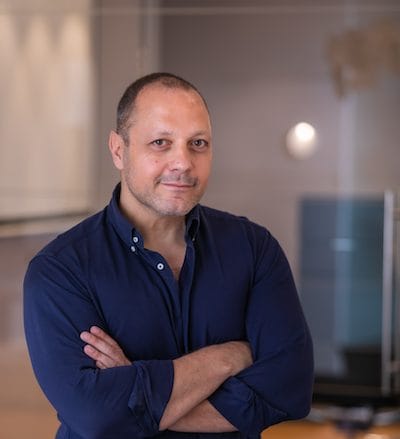What if speaking into your smartphone combined with smart AI can transform at-home healthcare using a vocal signature to diagnose health problems through an app? The potential to save lives, and reduce patient hospitalizations by changing medicine intake without a doctor’s visit is the future of healthcare and is happening now.
Voice processing technology and AI quickly evolve, making access to in-home healthcare and disease diagnosis a reality. Voice-enabled technology and the AI behind it has made our lives more convenient, providing helpful information by simply speaking into a smartphone. We can ask Siri, Google Assistant, or Amazon Echo nearly any question and get instant answers to our most pressing issues. But what if similar technology was used to perform health diagnostics for heart and lung diseases, Alzheimer’s, COVID, and other ailments from the comfort of your home, straight from an app on your smartphone? Can the healthcare industry develop access to diagnostic care from your phone? The answer is yes.
Voice Processing Technology Will Transform Healthcare
Personalized and at-home medical technology driven by voice-enabled AI can benefit diverse patients’ physical and mental well-being. Technology can act as a diagnostic tool delivering accurate and, in many cases, lifesaving information directly to the patient and their healthcare provider so that both parties can be proactive in treating conditions in less intrusive ways. Taking advantage of such revolutionary advances in the industry can reduce trips to a physician’s office, hospitalization, and the severe side effects of unnecessary medications.
For example, Congestive Heart Failure (CHF) is a multi-faceted and life-threatening syndrome characterized by significant morbidity and mortality, poor functional capacity and quality of life, and high costs. CHF statistics are alarming: 64 million people are affected worldwide, and in the US 6.5M are diagnosed and afflicted with CHF condition. Each year in the US, ~1.1M people are hospitalized with CHF, making it one of the most prevalent and costly conditions. With the advent of HearO proprietary speech processing technology and AI, the patient’s voice can alert prior to Congestive Heart Failure deterioration 22 days on average before potential hospitalization occurs. This allows the physician to intervene remotely and change the patient medication in a way that will overt potential hospitalization. All via an intuitive and easy-to-use device (as easy as talking to your mobile phone device) which also guarantees high patient compliance.
Diagnosis of CHF is unique, considering that previous introductions of wearable devices, invasive sensor devices, or remote tests with the current standard of care resulted in patients receiving inaccurate results, costly procedures, and challenging-to-understand medication instructions. Fortunately, the development and emergence of physician-prescribed mobile medical device applications based on AI and voice processing technology will help patients and healthcare workers with timely information to make the correct diagnosis, changing the medical diagnostic landscape as we understand it today.
How Voice Signature Using AI Works
A baseline voice signature – a vocal biomarker can detect a change and the increased risk of CHF. Doctors typically diagnose CHF by altered fluid status in the lungs. Through thousands of voice-signature samples and more than 600 active users in the clinical study, published results establish the association between a vocal biomarker derived from voice signal analysis.
With modifications to existing speech processing models used in apps such as Alexa and Siri, AI technology can detect congestion sooner and allow the clinic to intervene quickly to slow down the patient’s deterioration. The base of this model is that the lungs act as the engine of the speech process. The AI analysis algorithms can be trained to measure changes in the energy generator of speech. The best way to understand this technology is to think of a car engine filled with fluids; the car can drive well for a while, but eventually, the engine will be congested, sound congested, and the vehicle will stop. However, it will be too late.
An AI and voice processing app can detect and predict worsening heart conditions by listening to a patient’s unique voice signature to identify changes and detect events before the patient can feel it, and the cardiologist can diagnose it. An easily accessible smartphone app can compare each day’s vocal signature with the baseline offering a quick, easy, and painless way to determine fluid in their lungs. If altered fluid states are detected, an alert immediately sends a message to their physician. The physician can then begin lifesaving measures in real-time.
The evolution of speech is the future. We will continue to see more advancements in diagnostic AI technology that leverage voice datasets and advanced diagnostic capabilities for various clinical conditions. Simply put, medical-grade digital voice signature health apps can save lives.
Tamir Tal, CEO of Cordio Medical, Cordio is developing a medical speech signature processing lifesaving app to diagnose and alert before congestive heart failure deterioration. Called the HearO, this speech signal processing AI can be made available to millions. He has over 20 years of experience in operations, finance, business development, and management of multiple high-tech companies. Tamir served as COO at Neovasc Medical Ltd. This cardiovascular medical device company developed the Neovasc Reducer™ for the treatment of refractory angina (NASDAQ: (NVCN) and COO of Geomage, a leading imaging solutions provider for the oil and gas industry. Since 2005, Tamir has held the position of Venture Partner at Peregrine Ventures.








